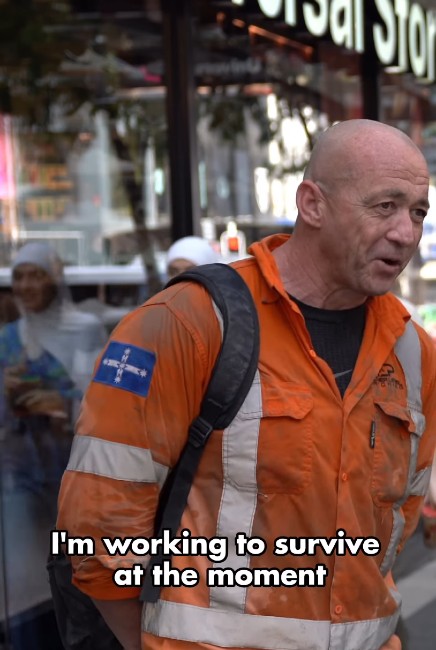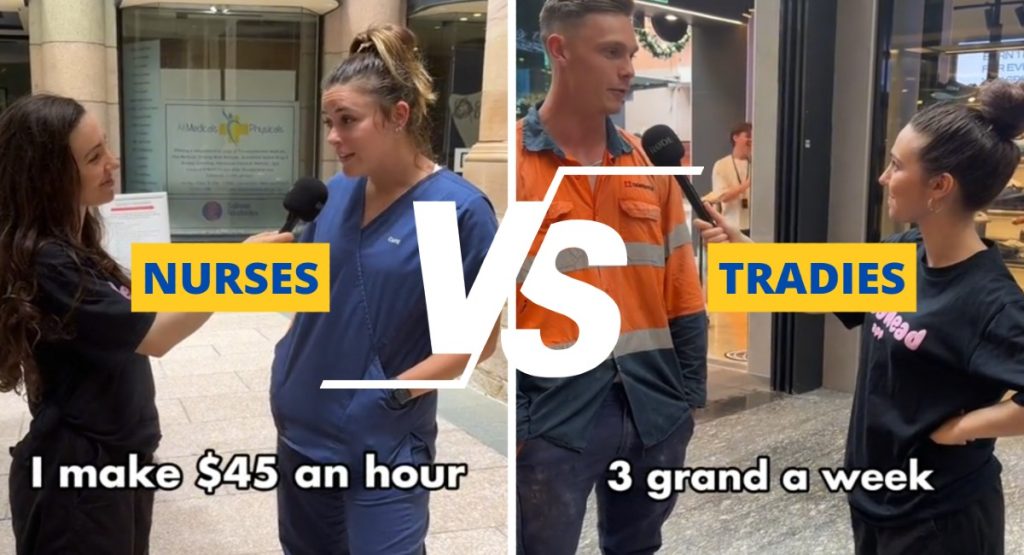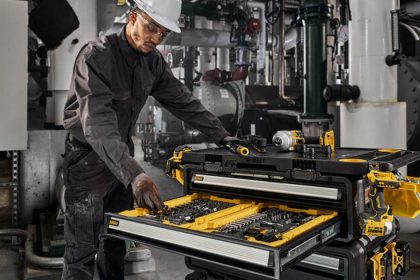A Brisbane tradie has sparked viral online backlash after revealing that despite earning almost $150,000 a year, he feels like he’s just “working to survive.”
The concrete patcher shared his experience during an interview with the job-finding app Getahead, where he detailed his salary and working hours for their video series on Aussie incomes.
The concrete repairer revealed that he takes home between $2500 and $3000 per week after tax, putting him close to the $150k mark annually.
However, as Build-it readers know, a tradies’ paycheck doesn’t come easily — with this bloke’s workdays stretching ten and a half hours, five days a week, plus the odd weekend shift.
Despite the hard graft, the Brisbane-based worker described it as one of the “easiest” jobs in construction comparatively, yet wasn’t very enthused about the idea of working in the industry until retirement.
“I’m working to survive at the moment,” he revealed.
“No. I wish I could win the lotto or something. This is all right for the time being.”
Unsurprisingly, the tradie’s answers triggered a wave of reactions online from ‘Joe public’, with some social media users questioning how a six-figure income could leave him feeling like he was just scraping by.
“(Up to) $3000 per week after tax, and he’s working to survive?” one person questioned.
“Bro is pulling 12k a month and saying he’s barely getting by!” Another said.

Meanwhile, others were eager to offer a less than genuine explanation for the concreter’s cashflow troubles.
“Ex-wife, three kids, cocaine and a Thai girlfriend,” joked one commenter.
“Like every good construction worker probably spends most of it at the TAB and nose beers.” another said.
Some social media users struggled to hide their envy for the tradie’s wage, claiming his remuneration was unfair compared to other essential workers.
“He’s earning a lot more than me as a nurse for 11 years in the ED department, 12 hours a day. Where’s our 15 per cent pay rise?” one user asked.
It’s not the first time the revelation of tradie wages has caused anger from those in other industries — with Build-it reporting the “insane” salary gap between construction workers and nurses was causing a rift earlier this year.

However, some social media users were keen to give the concreter a fair go, pointing out the rising cost of living, especially in our major cities.
“If you have a mortgage in a city like Brisbane, you’re not left with that much,” one user explained.
“Ten years ago, making $100k meant you were doing okay. Nowadays, $100k is poverty,” another said.
Meanwhile, some quickly pointed out that many others wouldn’t be willing to put in the hours or hard yakka to earn the tradie’s income regardless.
“Ten and a half hour days AND weekend work – tough job.” a user wrote.
“Done some concrete work myself, and I reckon it’s one of the hardest physical trades out there.” another said.
Hard work and extra hours – not excess pay
Despite the cost-of-living struggles, the Brisbane tradie’s salary still places him above the national average for his profession.
According to data from job platform SEEK, the average annual salary for tradies ranges from $75,000 to $95,000, meaning the concreter’s salary does, in fact, put him above the national average for the industry as a whole.
However, when Build-it’s team examined the numbers a bit further, without weekend work and overtime, the tradie actually earns under $50 per hour, placing him firmly within the average salary bracket for the industry and in line with the nation’s average salary estimates.
Cost of living expert and Money writer from Finder, Rebeca Pike, said the tradie’s location could mean his salary doesn’t go as far as many regional-based Aussies may think.
“Someone earning $50,000 in a low-cost regional area might be financially comfortable and able to budget effectively. In contrast, someone in Sydney making $100,000 could be struggling to make ends meet due to high housing costs,” she told News Corp Australia.
“For much of the last few years, wages have not grown at the same rate as inflation, and that’s left a lot of people struggling with even day-to-day costs








